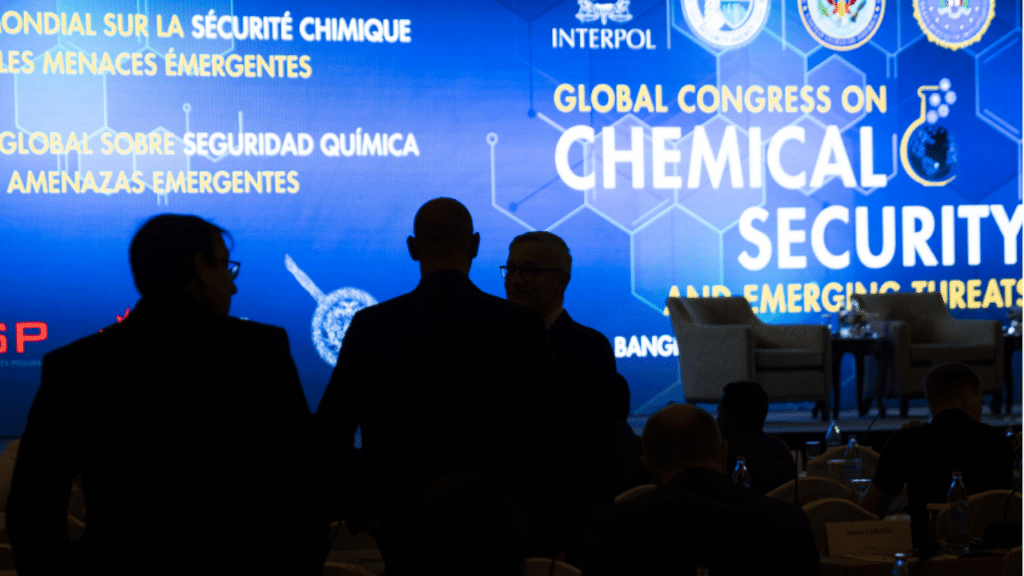Recently, INTERPOL jointly led The Global Chemical Congress alongside the U.S. Cybersecurity and Infrastructure Security Agency (CISA), the U.S. Defence Threat Reduction Agency (DTRA) and the U.S. Federal Bureau of Investigation (FBI) to find ways to combat chemical threats.
In just six hours, an Artificial Intelligence (AI) system was able to create tens of thousands of chemical compounds that could be used as chemical weapons, demonstrating the potential for nefarious actors to exploit new technologies for lethal purposes.
Earlier this year, USB keys containing improvised explosive devices were delivered to several media stations in Ecuador, resulting in the publication of an INTERPOL Purple Notice to share critical crime-related information on new modus operandi.
Incidents such as these show how chemical threats are complex and varied, requiring a diverse set of strategies across the supply chain in order to combat them and strengthen global chemical security.
As such, more than 300 experts from law enforcement, industry, international organisations, government and academia convened in Bangkok to share information, case studies and best practices on issues related to risk management, public/private partnerships and challenges in implementing effective chemical security.
Police Lieutenant General, Assistant Commissioner-General of the Royal Thai Police said: “We need to stay one step ahead of criminals and terrorists in their pursuit to acquire dangerous chemicals to harm innocent lives. INTERPOL’s role in facilitating partnerships between law enforcement and government, as well as the private sector is key to ensuring that critical information is shared between the right people at the right time.”
Under the theme of Chemical Security in Action, this year’s plenary meeting also focused on emerging threats including nefarious use of 3D printing, pharmaceutical-based agents and AI.
Since its establishment in 2018, the Global Chemical Congress and Emerging Threats network has helped close security gaps by using a multi-sector approach and providing actionable information to participants.
A private chemical company in the United States improved its policies and procedures for transporting chemical goods following last year’s meeting as a direct result of sharing best practices and viewing INTERPOL’s awareness raising video, ‘The Watchmaker’, which highlighted potential vulnerabilities across the supply chain.
INTERPOL’s Counter-Terrorism Director, pro tempore, Catherine Colthart, said: “Breaking down silos and strengthening our relationships across every area of the chemical supply chain is the only way we can secure dangerous chemicals from getting into the wrong hands.
“Chemical security is a global responsibility, and the focus of this network remains in supporting the partnerships that enable law enforcement and the international community to tackle this threat effectively.”





